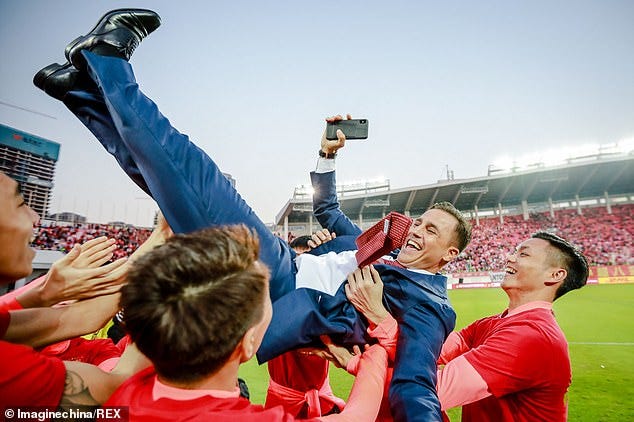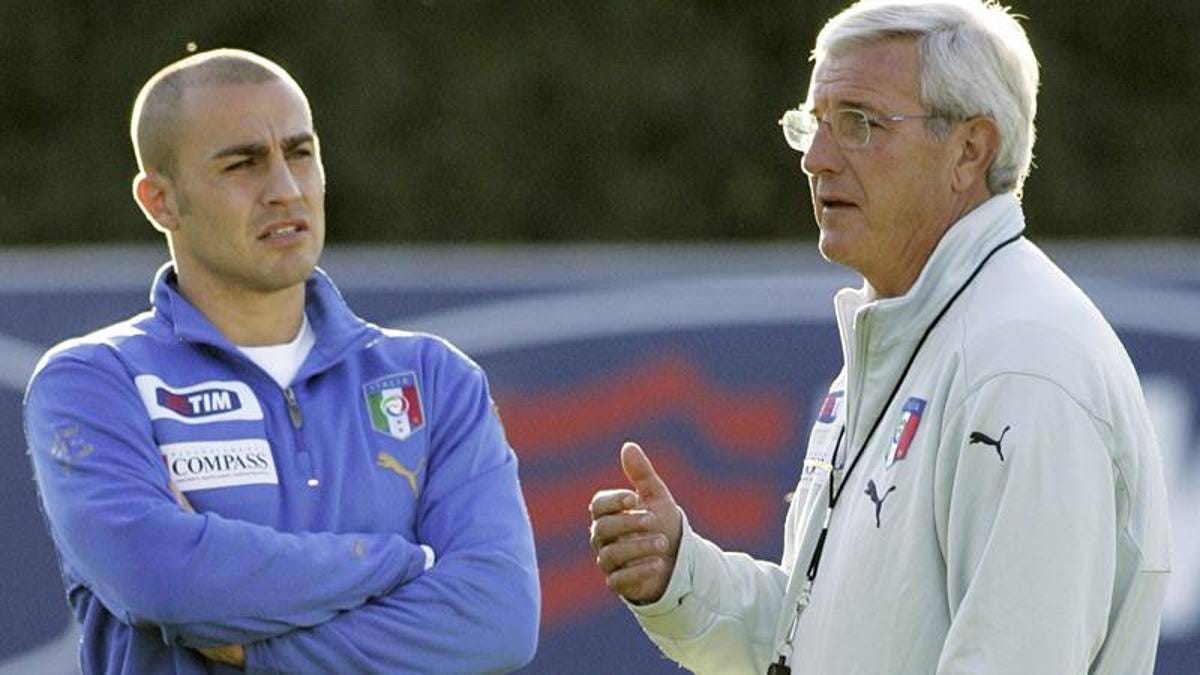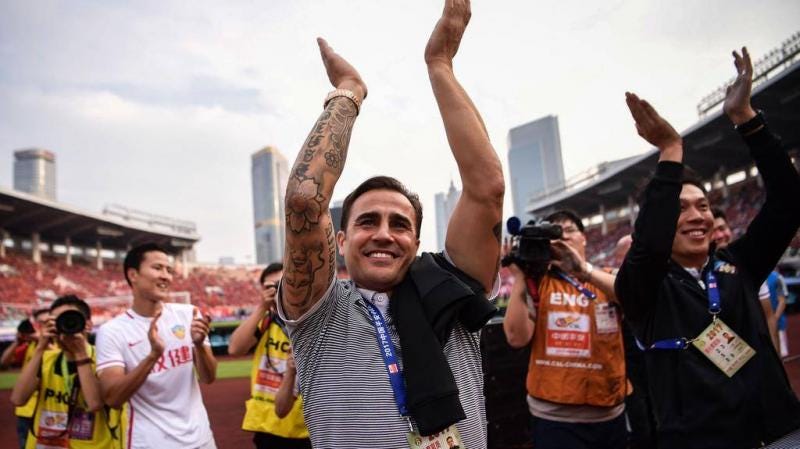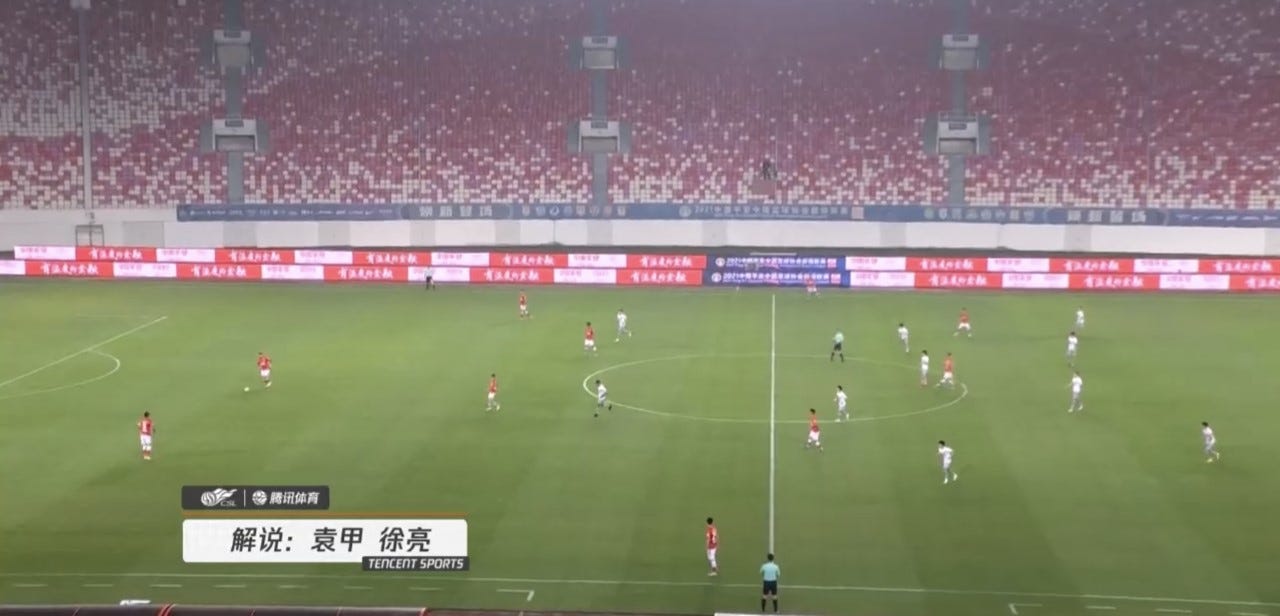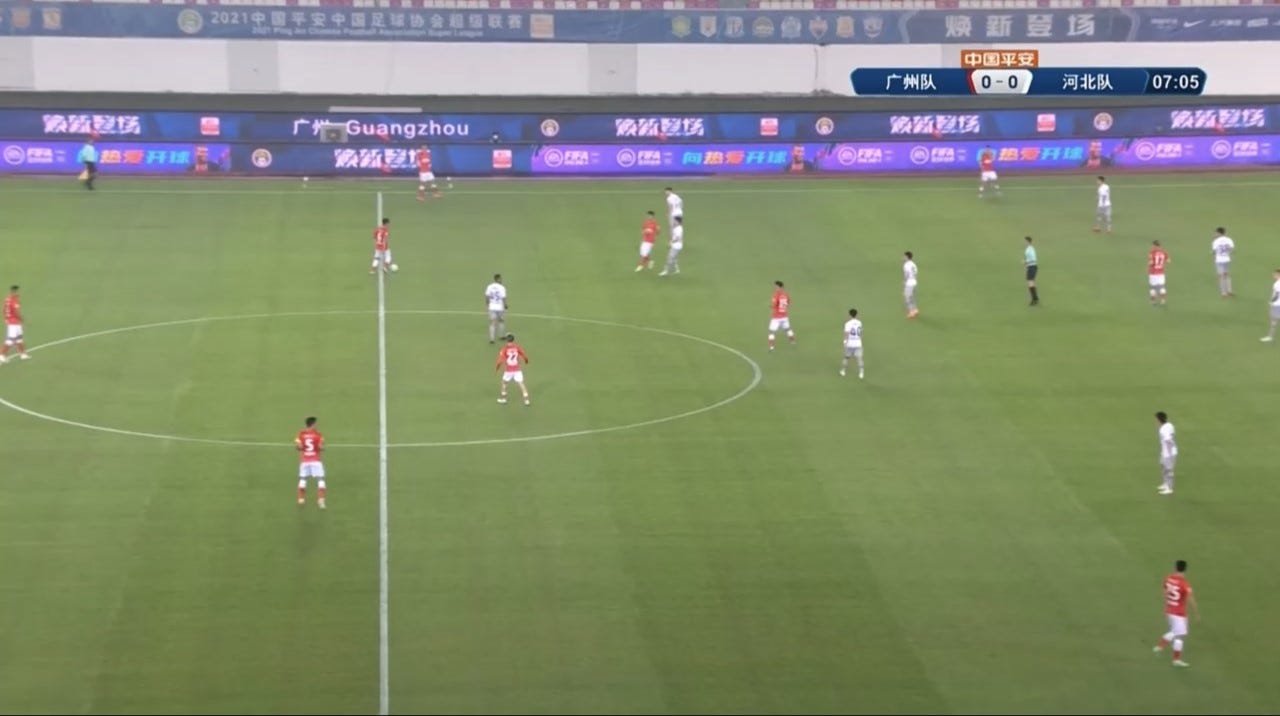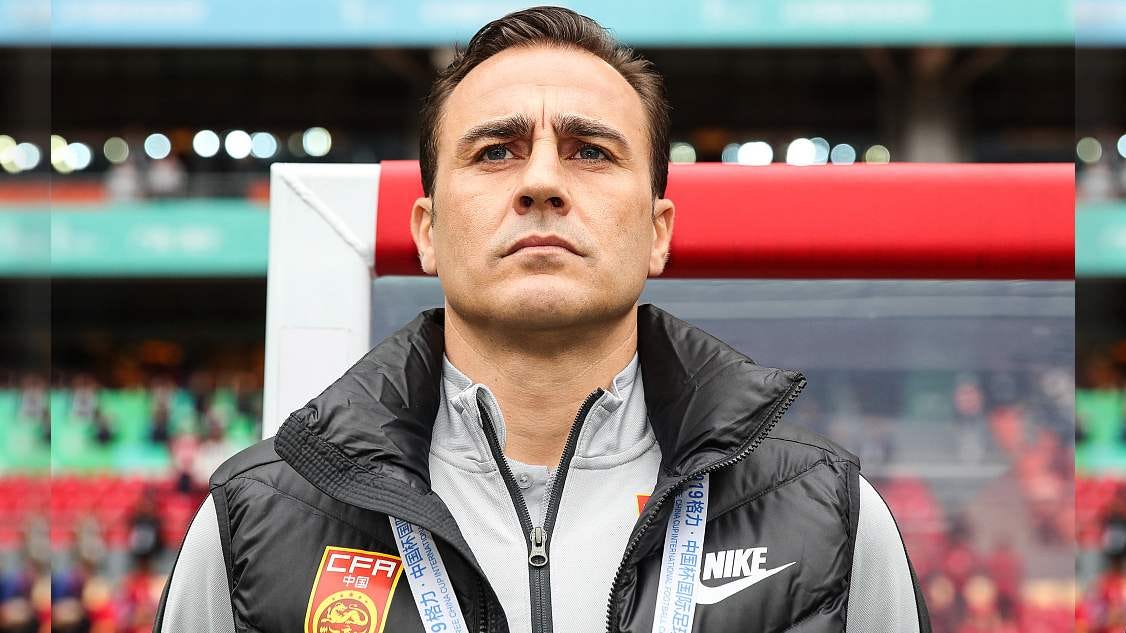Fabio Cannavaro. Could he be the man for Watford?
Fabio Cannavaro, one of the worlds best ever defenders, one of my favourite ever players, and the last defender to win the Ballon d'Or in 2006 after the Azzuri won the World Cup. Every man and his dog can speak about the player he was, but what about the coach he is today? well that’s still up in the air, despite having a near decade long career in management. Is it ignorance to ignore coaching qualities in Asia? possibly, but the standard of football and the lack of coverage for the CSL is the reason for that. At Tianjin Quanjian, Cannavaro won the Chinese League One in 2016, and then winning the Chinese FA Cup and Chinese Super League in 2018 and 2019 — Chinese FA also awarded him Coach of the year in 2017. Yet despite all of that, as well as managing 227 games in his career, with a win percentage of 57, there’s still doubt about his ability? In China, there’s a certain stigma around the culture of the sport — the culture being paying peaked footballers ridiculous amount of money to play in a pretty poor standard league, and that’s saying it politely; I watched three games of Guangzhou Evergrande, and it was genuinely the worst standard of professional football I’ve ever seen — which isn’t a slight against Cannavaro, in fact it actually helps him because of the ideas he was putting across and the style shift and shock it was against the teams he came up against; which is probably why the Italian hasn’t landed a job in Europe yet. He himself said it best “As a footballer I did great things so my name is important, but it’s different as a coach, you need to be intelligent.”
When Cannavaro retired in 2011, he originally wanted to be a Sporting Director, but his former Manager Marcelo Lippi rang him to say he should take a job in China — anyone else rang him and he would have said no, but Cannavaro states Lippi is the best manager and mentor he ever had. As I mentioned earlier, the Italian started off his first team managerial career in 2014 with Guangzhou Evergrande, and it didn’t go well at all. On the face of it, winning 11 of your first 22 games and only losing 5 isn’t terrible, but the Chinese club were the big fish, and were expected to dominate, and they didn’t. Highlighted further by the fact Luiz Felipe Scolari came in after he was sacked and won the CSL and Asian Champions League. After his disappointment in China, Cannavaro went to Saudi Arabian giants Al Nassr, and again it didn’t go well — he was tasked of winning them the league after a poor start and was sacked after just 16 games. At this point, it hasn’t been a good start to his management career, sacked from two clubs with expectations of winning the league after only 38 games. But this is where his luck changed, by taking over Chinese League One side Tianjin Quanjian where he won the league in his first season, and then in the second season taking them to a Champions League finish and their highest ever finish of 3rd. So much so the ex came calling.. yep, Guangzhou Evergrande came back for him for where he stayed for four seasons.
What’s his style of play like? well, I’ve only watched three games of his, but there was enough in there to suggest it was a common theme throughout his time given the same patterns of play emerged in the three games. Cannavaro is influenced much by Spanish football, and has even said it in an interview — “I am a coach who wants to win, I was a defender and I’m Italian, but I want my teams to play well, I have the Spanish influence in me from my three years at Real Madrid. When my players ask me, I tell them that the first thing is to attack because attacking defends. If you have the ball, you make the opponent run, that is the culture a coach must have. I’m a coach who asks the players to play, a coach who asks to give intensity with and without the ball, because football is about time and the players have to understand that.” He’s not wrong with what he described his ideologies as, given his time in China, his teams were in the top two for highest pressers, creating the highest xG, attempting the most passes and conceding the fewest goals. In terms of set up, Cannavaro mainly used a 433, but sometimes used a variation of 343 — conveniently the only accessible games I could find were the games he used 343. The best way I could describe It was a bad Manchester City impression. Not because of Cannavaro, but more because his players, bar the stars, were extremely limited in their ability.
From kick off, you can see Guangzhou, who are playing in red, immediately look for the short pass, and that’s because in this system, the two DMs will always look to receive the ball short, with the number 10 looking to receive the ball from them between the lines. Just from watching, and I can’t stress this enough, watching these three games, the right wing back is rarely if ever involved in buildup or possession, he’s effectively there to stretch the play on the ball as an option, but not get too high up so the team can’t get countered on both sides. What I would say is the left wing back is the main outlet, and combines with the attacking midfielder a lot — especially underlapping for cut backs.
In build-up, depending on what side of the field they’re on — the wide centre back will take up the right/left side zone of the pitch, with the 10 and free striker dropping deep to create a box in the middle of the pitch, just so the wingback can be in space to receive a long pass, this happened quite frequently. What I would add to this is, Cannavaro works with a data analysis team in Italy called Footure Lab, and they work extensively on third man runs, pressing and goalkeeper distribution, which is a key part in Cannavaro’s style of play. He wants to his team to have the confidence in their GK that they can start again, and he can play a pass like he’s a midfielder. He himself has talked about that side of the game where a player must be happy mentally. “In Italy we say It’s like you need to touch the right things, like when you play the piano. It does not matter who you are if you don’t know how to speak to your players — sometimes you need a father, sometimes a brother, sometimes a friend. Many coaches don’t care about the team outside of the pitch but I care about everything. If the team is happy on the pitch and unhappy off it, then maybe it’s not a problem today but it will be tomorrow.”
Regarding off the ball — whilst from a data perspective his Guangzhou side were excellent; there were some flaws which I’d like to flag; and interestingly this seems to be, and this might be a selective statement from myself, but ex players don’t know how to coach a midfield off the ball — Lampard can’t, Parker can’t, Arteta couldn’t, Xisco Munoz can’t, Rooney isn’t bad, but still gets caught out in transitional phases way too easily. Teams were able to run through the middle of the pitch fairly easily, but just didn’t have the quality to punish Cannavaro’s side. In terms of the press, Guangzhou hunted high up the pitch in threes, mainly because most CSL team’s can’t handle it, nor are they good enough to play out, but given the press was sometimes loose, it was quite easy to play one pass over the top and the opposition had a chance on goal. Despite saying all of this, and hearing bad things about Cannavaro as a coach before watching it first hand — I was pleasantly surprised by his ideas and what he wanted to implement. There was something different in each game via build-up and with better players at his disposal; It could be really effective.
I’ll tie it back into Watford — who according to the man himself, interviewed for the Watford job, and was at numerous games with Gino Pozzo learning about the club with maybe taking over one day. “They spoke to me before Roy Hodgson was appointed, they told me they wanted to find a coach in a few days, but they said they wanted Premier League experience, but I was honoured to have an interview with them and it’s important that I have had these conversations.” — He’s also said he wants his next job to be In England and Is happy to drop down to the Championship; “Even if its a smaller club, I don’t care because I just want to coach so I can share my experiences. I’m confident I can do a good job. I have no problem working In the second division because you can still be a very good coach, I have my philosophy but I know I can always learn and Improve. I am not a coach who says here’s my system and that’s it. What is important is what the project is. Right now I want to work In England because my children are studying here.” — There’s obviously a huge unknown with Fabio Cannavaro and whether he would be the man you’d bank on getting promotion, but he speaks a good job and shown in recent years he can adapt and improve his ability as a coach, and you can bet the players will respect him and work for him just because of who he is — and let’s be honest, having Fabio Cannavaro manage Watford would be cool as fuck.



